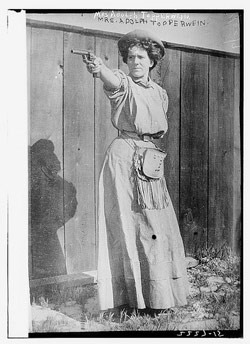I was lucky enough to be asked to speak at the Learning Libraries V. 3 Celebration yesterday. Below are my remarks. Congratulations to Ginny Hyde, Regina Spiker, Nancy Sudine, Maryland Appel and Lisa McKenney!I believe in you.
I believe in the power of humans to make things better for themselves and for others.
I believe we must grow and change as individuals and as organizations to stay relevant and healthy.
I believe in libraries as a path to help people make things better for themselves.
To say we are a learning organization is to say that we believe in what we are doing so much that we seek new ways to do more or ways to improve how we are currently doing it.
I believe the job of growth and change is too important for just 1 or 2 people to lead, we need every one of you to lead, maybe not all at once, but your time will come.
Libraries and other organizations will settle into traditions and patterns and standard methods to get things done, they seek out equilibrium. It’s perfectly normal.
I believe that Learning Libraries gives you the tools to disrupt the equilibrium.
Believe it or not, my job and your job are NOT to protection, direction, and order, our job is to create enough disruption that positive change and growth is the path of least resistance.
I believe that every one of you has the ability to do what needs to be done.
The question we face every day is “Am I willing to do what needs to be done?”
What are some of the things that make it hard for you and me to take the next step to act and make things better?
For you to invest yourself into making things better carries risk.
• The Risk of failure,
• risk of success,
• risk of disrupting the flow,
• risk of what you might find, or
• risk of being ostracized.
Here’s where you start to realize the power of emotion and its ability to trump logic.
Has this ever happened to you? You call out “I’ve got it!!?” And then you look out and see lots of skeptical faces staring back at you.
Not because it is a bad idea, but because they, the audience don’t know as much as you, only that something will have to change and we typically get uncomfortable when we don’t know how it will affect us.
When you try to improve things you will make people uncomfortable and that’s not an emotion that we typically enjoy.
Where does that put you as the one leading this change?
You might be seen as the trouble maker, the change maker, the outsider, not typically your comfort zone.
Now everyone is outside of their comfort zone. You as the leader and them as the one forced to change.
FACT: Leadership behavior and moving an organization forward requires making people uncomfortable.
Moving forward requires leadership behavior from you.
Leadership behavior means helping others to absorb the pain of loss and change at a rate they can handle to continue to evolve and move forward.
What’s another reason we must summon the courage to act and make things better?
Because to move an organization forward often requires choosing between contradictory values.
A Library Example: In Allegany County our motto is “Something for everyone…” so you could assume we want everyone to come in to the library.
Take this hypothetical statement example from a fictitious staff member.
“I feel so good when nice people come in and check out a book.” “But why do those rambunctious kids need to use the computers so much, and why are they here? most of them have computers at home. “
For the library to grow and stay relevant and healthy, do you think that one of these values needs to be change or adapt to the new reality or world around it.
Which value do we let go of to move the organization forward?
How do we harmonize those 2 mental models in our own heads?
How do we leave older values and traditions behind?
Then how do you say to the people who you have worked with in the past or have even supported your career that they must change.
Talk about a scary prospect.
I believe the best way to predict the future is to make it yourself.
I believe in libraries and the roles we play in our communities.
I believe we must grow and change as individuals and as organizations to stay relevant and healthy.
I believe the job of growth and change is too important for just 1 or 2 people to lead, we need every one of you to lead.
I believe that every one of you has the ability to disrupt the equilibrium and to do what needs to be done.
To stretch your comfort zones, the learning libraries principles of Systems thinking, mental models, personal mastery, shared vision, and team learning will give you the framework to be prepared for what needs to be done.
But to overcome that room of skeptics, I think our best line of offense is
“Look what we can do together.”
And remember I believe in you and congratulations.



 Google
Google 









 The new site at
The new site at 



 They have no moving parts and can be networked to do most of what we need.
They have no moving parts and can be networked to do most of what we need.
